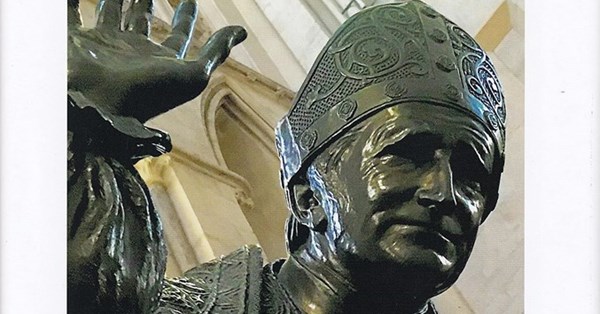EDWARD KING of Lincoln is often remembered as the first bishop to wear the mitre since the Reformation. Much more significant, however, than any Ritualist tendencies was King’s virtual invention of the modern pastoral cleric, committed to parish and people. As Rowan Williams points out in the foreword, he also redefined the pastoral responsibility of the bishop.
Michael Marshall, himself a former Bishop of Woolwich, was educated at Lincoln Grammar School and now repays a lifelong debt to King in a biography that reminds one of the capacious episcopal “lives and letters” of the Victorian era. And so much the better, as some of the lengthy quotations from original sources and lively authorial asides on the present state of the Church of England are something of a wake-up call.
Born into a clerical family in 1829, King was educated at Oriel College, Oxford, and was ordained in 1854. His ability was recognised by the most energetic bishop of the day, Samuel Wilberforce, who appointed him to be first chaplain and then principal of the new theological college at Cuddesdon, and then by the High Anglican Oxonian, William Ewart Gladstone, the prime minister who proposed him as Regius Professor of Pastoral Theology at Oxford and then, in 1885, as Bishop of Lincoln.
“Spy” cartoon of “a persecuted Bishop”., used in the book: King in 1890, when, as a Ritualist, he was targeted by the Church Association and brought to court at Lambeth Palace
Two of Gladstone’s foundational thinkers — Aristotle and Bishop Butler — and two of the fathers of Anglicanism — Richard Hooker and Lancelot Andrewes — underpinned King’s theology and ecclesiology. For King, never a manager, as Marshall acknowledges, and with an ear for the poetry of Dante and Wordsworth, “it was always a question of heart and mind being in tandem, which is a rare quality in those of a more academic or scholarly bent.”
At Cuddesdon, he also served as the parish priest, learning pastoral skills that were to be passed on to the clergy of Lincoln diocese during his 25 years of service as a bishop.
Marshall is alert to assumptions made in our prurient times about the sexuality of a celibate clergyman who wrote affectionate letters to male friends. What he describes as “the perennial trap of making anachronistic judgments limited and even prejudiced by the culturally conditioned perspective of a later age” should be avoided by all aspiring scholars and ministers of religion.
Marshall avoids the trap himself when quoting a letter from the newly appointed Bishop King in which he expresses his delight at returning to the cure of souls and being a shepherd again, a proof of God’s love, “and that He means me to be a Bishop of His Poor!” The poor man at the rich man’s castle gate? As beneficiaries of the welfare state, Marshall argues, we must not judge King anachronistically here.
During the bishop’s ministry in Lincoln, eight men were executed in the prison in the castle opposite the west front of the cathedral. Edward King visited the condemned men and accompanied two of them to the scaffold. He is recorded as saying, “We must not give up any soul, as hopeless.”
Dr Wheeler is a Visiting Professor of English at the University of Southampton and author of The Athenaeum: “More than just another London club” (Yale, 2020).
Edward King: Teacher, pastor, bishop, saint
Michael Marshall
Gracewing £35
(978-1-78182-970-7)
Church Times Bookshop £31.50
Credit: Source link




